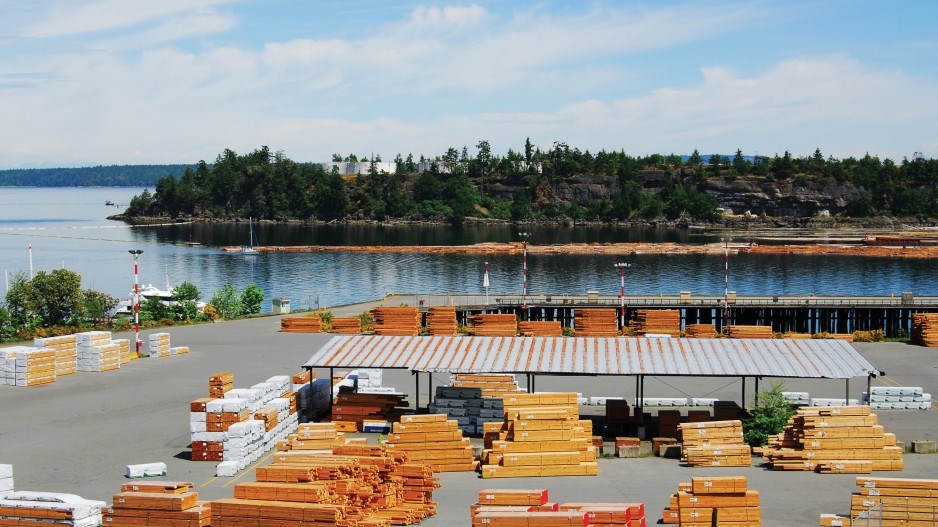If it’s true that business hates uncertainty, then the B.C. forest industry is in for some ill feeling in 2017. Finding opportunity in the face of that uncertainty is the challenge for the coming year.
The biggest challenge comes from the United States, which has initiated trade investigations that are expected to result in duties of 30% or more being applied to Canadian lumber by the second quarter. That’s likely to lead to short-term chaos, according to an outlook published in December by the International Wood Markets Group consultancy. The U.S. is also seeking duties on unassembled products like window frames, which will bring more value-added businesses into their sights for the first time.
The duty will cause U.S. lumber prices to jump, but it will push Canadian costs higher, putting the brakes on some lumber production here, leading to layoffs and possible mill closures. Canada’s share of the American market is expected to drop.
That other perennial villain in the Interior lumber sector – the mountain pine beetle – will also play a dampening role in 2017. Loggers are harvesting the last of the beetle-killed wood that can be economically made into lumber, and the higher costs brought on by U.S. duties could marginalize those sawmills processing it, according to the consultancy.
However, the B.C. industry overall is well positioned to withstand the blows coming in 2017. Last year, the wood products sector posted its best performance since the recession, buoyed by a low Canadian dollar and rising prices for most of the forest commodities.
Those profits are now standing them in good stead. The large Interior companies in particular are entering 2017 well capitalized, said Kevin Mason, managing director of ERA Forest Products Research. The money they earned during the good times has been invested in new technology, and they are beginning the year with strong earnings and sound balance sheets.
Mason expects lumber prices to climb 15% in 2017 primarily because of the duty.
The price hike will absorb half the impact of a 30% duty, he said, except in the case of high-valued products. Those manufacturers will be less able to pass on the additional cost and will be hurt more.
Outside of softwood, there is some cheery trade news for 2017. B.C.’s largest paper producer, Catalyst Paper (TSX:CYT), has successfully fought off a U.S. duty on its supercalendered paper. Catalyst has been paying an 18.85% countervailing duty on the paper, which is used in magazines and catalogues. The company, with mills at Crofton, Powell River and Port Alberni, was hit with the duty in 2015 after it was named in a U.S. countervailing duty determination along with eastern Canadian producers, who were the target of the investigation. It took a year for Catalyst to win the case, and it came at a high cost. Catalyst president Joe Nemeth said the duties and associated legal costs had imposed an $18 million
burden on the company.
Despite the high cost of winning, Mason said the removal of the duty – expected in February – coupled with a debt restructuring at the papermaker, will bring a big benefit to Catalyst in 2017. It will have more money to move into higher-valued paper products.




